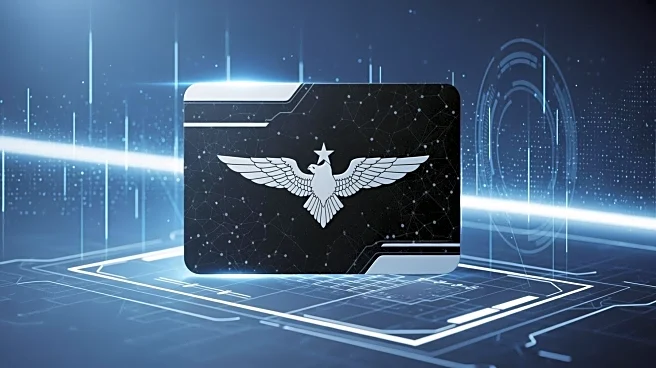What's Happening?
The UK government has introduced a digital veteran card, allowing former military personnel to download their identity cards onto smartphones. This initiative serves as a case study for a broader digital ID scheme planned for all British citizens and
residents. Approximately 1.8 million veterans are eligible to access this digital ID, which aims to simplify access to public services. The digital veteran card is the first document to be stored in the government's One Login smartphone app, with plans to include digital driving licenses in the future. The initiative is part of a larger government plan to introduce a mandatory state-issued digital identity for employment checks by 2029. Digital government minister Ian Murray highlighted the card's potential to address privacy and security concerns associated with the UK-wide scheme.
Why It's Important?
The introduction of the digital veteran card marks a significant step in the UK's efforts to modernize public services and streamline access to them. By digitizing identity verification, the government aims to reduce bureaucratic hurdles and enhance service delivery efficiency. This move could set a precedent for the implementation of digital IDs across various sectors, potentially transforming how citizens interact with government services. However, the initiative faces opposition from privacy advocacy groups concerned about data security and the implications of a mandatory digital ID system. The success of the veteran card rollout could influence public perception and acceptance of digital identity technology, impacting future policy decisions.
What's Next?
The digital veteran card rollout will be closely monitored as a test case for the broader digital ID scheme. The government plans to expand the digital ID system to include driving licenses and other services, with mandatory implementation for employment checks by 2029. Stakeholders, including privacy advocates and political opponents, are expected to scrutinize the initiative's impact on privacy and data security. The government may need to address these concerns to ensure public trust and compliance. Further consultations and adjustments to the scheme may occur as feedback is gathered from the veteran card's implementation.
Beyond the Headlines
The digital veteran card initiative could have long-term implications for digital identity management and privacy standards in the UK. As digital IDs become more prevalent, ethical considerations regarding data protection and individual privacy will likely gain prominence. The government's approach to balancing technological advancement with privacy rights could influence similar initiatives globally. Additionally, the integration of digital IDs into everyday life may prompt cultural shifts in how identity and personal data are perceived and managed.
















